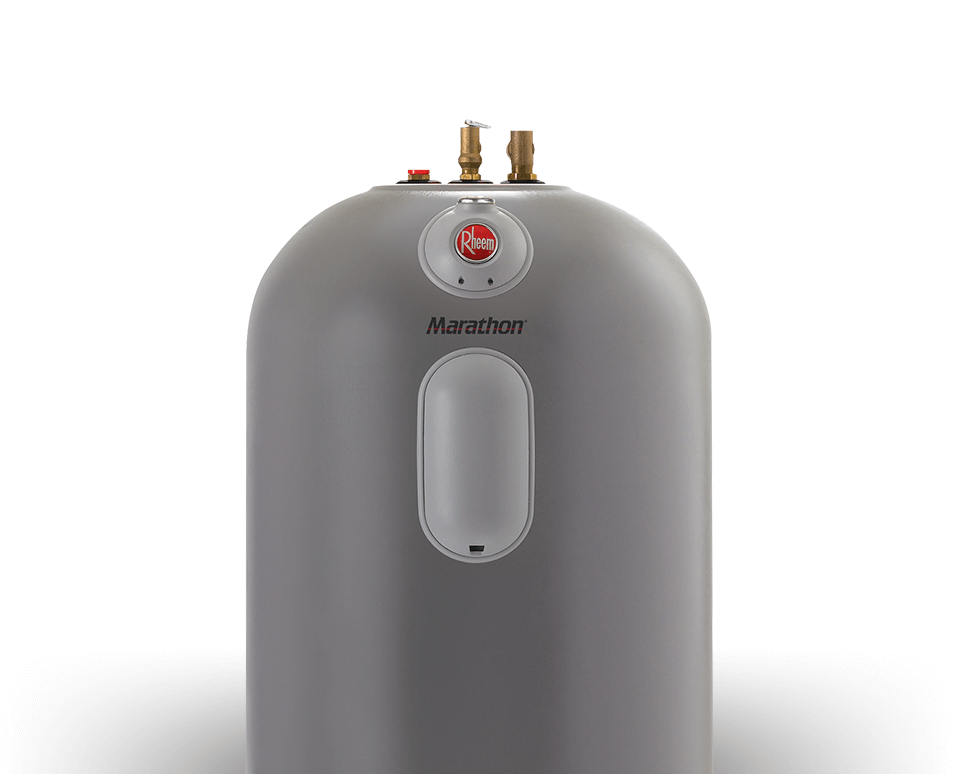Rheem Marathon water heaters occasionally experience issues such as thermostat malfunctions and sediment build-up. These problems can affect efficiency and performance.
Rheem Marathon water heaters are known for their durability and energy efficiency. Despite their high quality, some common problems can arise. Thermostat malfunctions can lead to inconsistent water temperatures, causing discomfort. Sediment build-up in the tank can reduce efficiency and shorten the heater’s lifespan.
Regular maintenance and timely repairs can help mitigate these issues. Understanding these potential problems can help homeowners take proactive steps to maintain their water heaters. Proper care ensures longevity and consistent performance from Rheem Marathon units.
Page Contents
Common Issues
Check the power supply. Ensure the heater is plugged in. Inspect the circuit breaker. Reset if tripped. Examine the thermostat settings. Adjust if needed. Look for any signs of damage. Replace faulty parts. Contact a professional if the problem persists.
Verify the water temperature setting. Increase if too low. Check for sediment build-up. Flush the tank to remove debris. Inspect the heating element. Replace if damaged. Look for leaks in the system. Repair as needed. Ensure proper insulation around the tank.
Temperature Problems
Rheem Marathon water heaters often face temperature issues, impacting user comfort. These problems may include inconsistent water heating or fluctuating temperatures. Troubleshooting and regular maintenance can help mitigate these concerns.
Water Too Hot
The water can get too hot. This might be because the thermostat is set too high. Adjust the thermostat to a lower setting. Check if this solves the issue. If not, the thermostat might be faulty. Replacing the thermostat could help. Another cause might be a faulty heating element. A professional should inspect it.
Water Too Cold
Cold water might mean the thermostat is set too low. Try increasing the setting. If the water is still cold, the heating element might be broken. Sediment buildup can also cause this problem. Flushing the water heater might help. Call a professional if the problem continues.
Leakage Concerns
Rheem Marathon water heaters sometimes face leakage concerns, often due to faulty connections or tank issues. Regular maintenance helps prevent these problems and ensures longevity.
Tank Leaks
Tank leaks can be a big problem. Water stains around the heater are a warning sign. Rust and corrosion may cause leaks. Plastic tanks are less likely to rust. But they can still crack. Proper maintenance can help avoid many issues. Always check for cracks and wear and tear. A leaking tank might need replacement.
Pipe Leaks
Pipe leaks are another concern. Loose connections can cause water to drip. Old pipes might develop holes or cracks. Tighten connections to stop leaks. Replace damaged pipes as soon as possible. Always inspect pipes regularly. This helps to catch issues early. Preventive measures save time and money.

Credit: www.rheem.com
Electrical Issues
A tripped circuit breaker can cause your Rheem Marathon water heater to stop working. Check the breaker panel. Reset the breaker if it has tripped. If it trips again, call an electrician. There could be a serious electrical problem.
A faulty thermostat may cause the water to be too hot or too cold. Test the thermostat with a multimeter. Replace it if it is not working. An incorrectly set thermostat can also cause problems. Make sure the temperature is set correctly. Consult the user manual for the right settings.
Noise Problems
Rheem Marathon Water Heater users often report noise issues, which can stem from sediment buildup or faulty heating elements. Addressing these problems promptly ensures efficient operation and extends the unit’s lifespan.
Popping Sounds
Popping sounds can mean sediment buildup. Sediment forms at the bottom of the tank. Water trapped below the sediment creates steam bubbles. These bubbles burst, causing popping sounds. Flushing the tank can help. Regular maintenance prevents this issue. Use a water softener to reduce sediment.
Humming Noises
Humming noises often come from the heating element. The element vibrates and creates a humming sound. Tightening the element can fix the problem. A loose element causes vibrations. Use a wrench to tighten it. Ensure the water heater is off before starting. Regular checks help maintain quiet operation.

Credit: www.reddit.com
Maintenance Tips
Regular flushing keeps your Rheem Marathon Water Heater in top shape. Sediment builds up over time. This reduces the heater’s efficiency. Flushing removes these sediments. It also extends the heater’s lifespan. Use a garden hose to drain the tank. Do this every six months. Always turn off the power before starting. Follow the manufacturer’s guidelines for best results.
Anode rods protect your water heater from rust. They attract corrosive elements in the water. Over time, anode rods wear out. Replace them every 3-5 years. Check the rod annually for signs of corrosion. Use a wrench to remove the old rod. Install a new one in its place. This simple step can prevent costly damage.
Diy Fixes
First, turn off the power to the water heater. Then, remove the access panel to locate the reset button. Press the reset button firmly until it clicks. Restore power to the heater and check if it starts working.
Ensure the power is off. Remove the access panel and the insulation. Use a multimeter to test the heating elements for continuity. Replace any element that shows no continuity. Reassemble the heater and restore power.
When To Call A Professional
Strange noises from your water heater are a warning sign. Leaks from the unit need immediate attention. Slow hot water recovery suggests deeper issues. Odd smells from the water may indicate contamination.
If your utility bills spike suddenly, it could be due to a faulty heater. Fluctuating water temperatures are another red flag. If basic troubleshooting doesn’t help, it’s time to call a professional.
Major repairs can include replacing heating elements. Fixing a broken thermostat is another complex task. Dealing with electrical issues requires expert knowledge. If the tank itself is leaking, it needs professional repair.
Replacing the entire unit is sometimes necessary. Incorrect repairs can cause more damage. Experts have the tools and skills to fix the problem. Always rely on a professional for major repairs.

Credit: www.reddit.com
Frequently Asked Questions
What Is The Most Common Problem With Rheem Water Heaters?
The most common problem with Rheem water heaters is a faulty thermostat. This issue often causes inconsistent water temperatures.
Are Marathon Water Heaters Good?
Yes, Marathon water heaters are reliable and energy-efficient. They feature a durable design, minimal maintenance, and excellent insulation.
Why Is My Rheem Marathon Electric Water Heater Not Heating?
Your Rheem Marathon electric water heater may not heat due to a tripped circuit breaker, faulty thermostat, or heating element.
What Is The Average Life Of A Rheem Water Heater?
The average life of a Rheem water heater is about 8 to 12 years. Regular maintenance can extend its lifespan.
Conclusion
Understanding Rheem Marathon water heater problems can help you maintain a reliable system. Regular maintenance is key. Address issues promptly to extend your water heater’s lifespan. By staying proactive, you can ensure efficient performance and avoid costly repairs. Keep your water heater in top condition for a steady supply of hot water.
